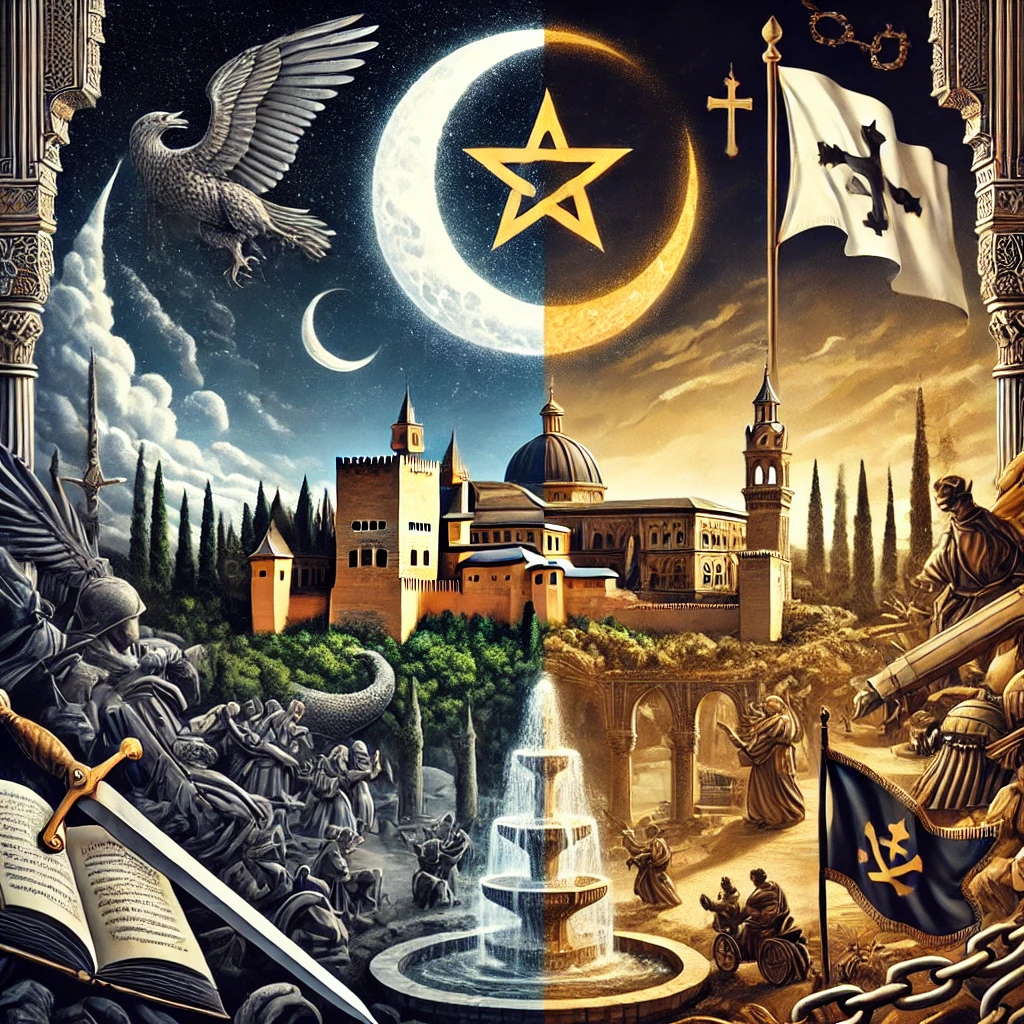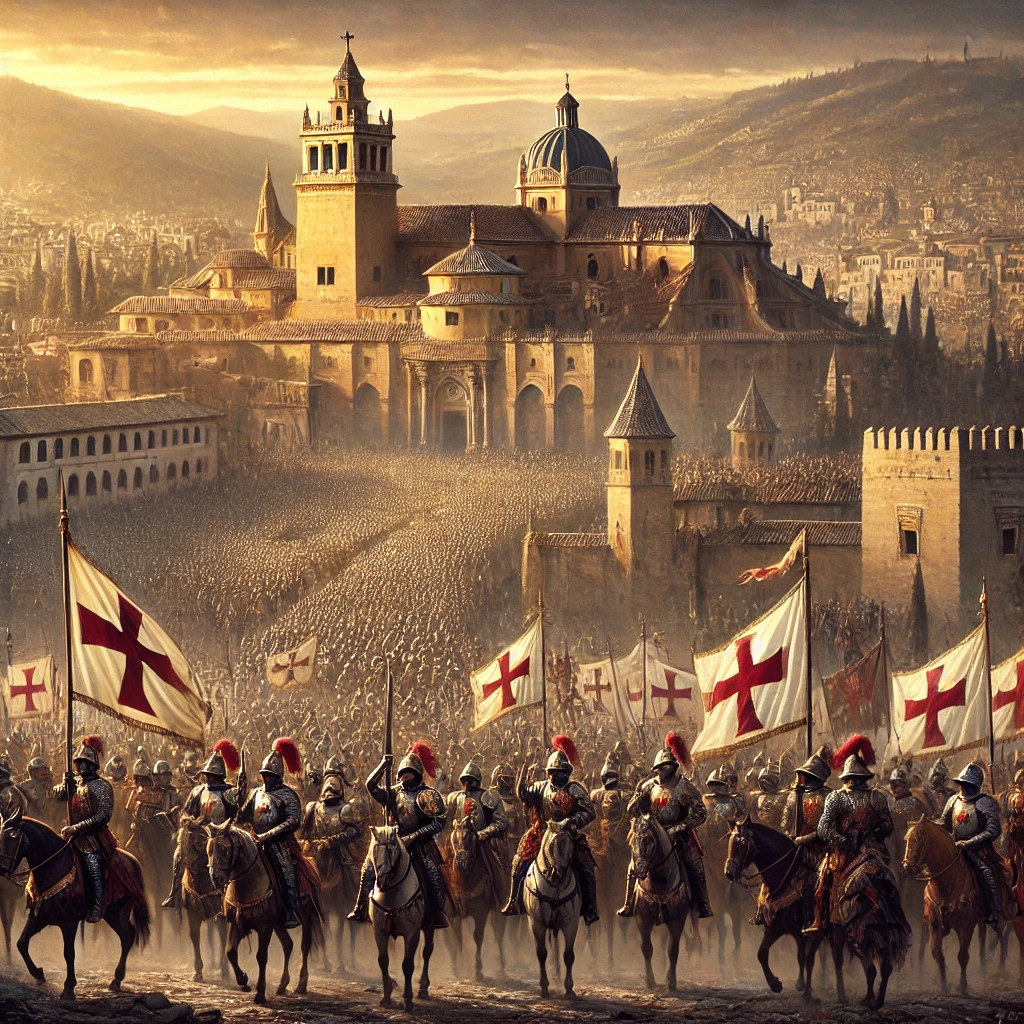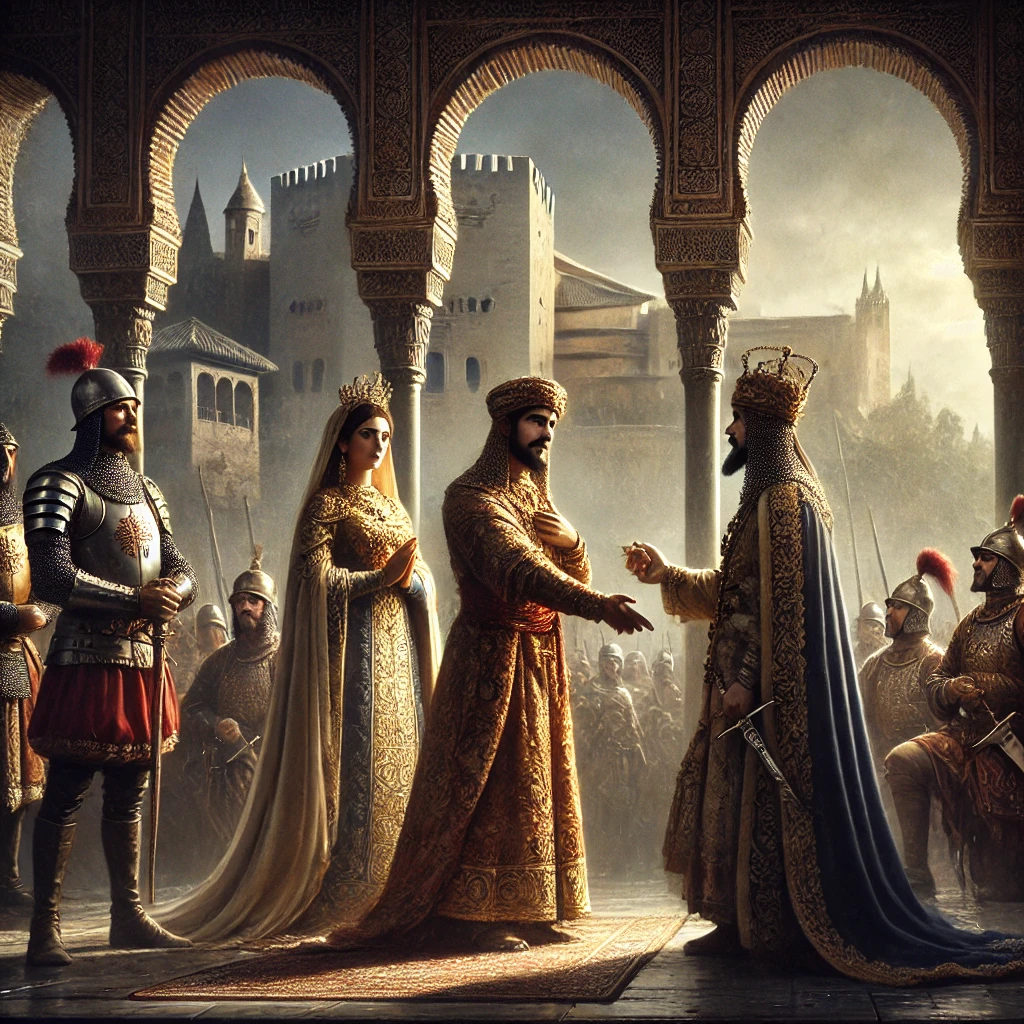On January 2nd, 1492, the Emirate of Granada, the last Muslim stronghold in Spain, fell to the Catholic Monarchs Ferdinand II of Aragon and Isabella I of Castile. This marked the completion of the Reconquista, a centuries-long campaign by Christian kingdoms to reclaim the Iberian Peninsula from Muslim rule. The fall of Granada not only symbolized the end of Muslim political power in Spain but also set the stage for the formation of a unified Spain, reshaping the religious and cultural landscape of Europe.

The Long Road to Granada
The Reconquista was a long and complex process that spanned nearly 800 years, beginning in the early 8th century when Muslim forces first conquered most of the Iberian Peninsula. Over the centuries, Christian kingdoms in the northern part of Spain slowly expanded their territories southward, gradually recapturing land from Muslim rulers. By the late 15th century, the Christian kingdoms of Castile, Aragon, and Navarre had unified under Ferdinand and Isabella’s marriage, significantly weakening Muslim control in the region.
Granada, located in the southern part of Spain, was the last remaining Muslim kingdom in the Iberian Peninsula. The Nasrid dynasty, which ruled Granada, had been forced into a weakened position by the relentless expansion of Christian territories. However, the fall of Granada was not a sudden event. For years, the Catholic Monarchs had laid siege to the city, slowly chipping away at its defenses. The final siege, which began in 1491, ultimately led to the surrender of the city on January 2nd, 1492.
The Significance of the Fall of Granada
The fall of Granada was a turning point in European history. It marked the end of Muslim rule in Spain and the consolidation of Christian control over the entire Iberian Peninsula. The event was celebrated as the completion of the Reconquista, a campaign that had defined the religious and political landscape of the region for centuries. Ferdinand and Isabella’s victory also solidified their power, leading to the unification of Spain as a single kingdom under Christian rule.

The completion of the Reconquista also had profound religious implications. With the fall of Granada, Spain became a firmly Catholic nation, and the Catholic Monarchs immediately took steps to ensure that their kingdom remained under Christian control. This included the forced conversion or expulsion of Jews and Muslims, an event that would shape the social and religious fabric of Spain for generations. The Spanish Inquisition, which had begun earlier in the century, was intensified after the fall of Granada, further cementing religious orthodoxy in the kingdom.
The Legacy of the Reconquista
The completion of the Reconquista with the fall of Granada did not simply mark the end of Muslim rule in Spain; it also set the stage for Spain’s rise as a global empire. Ferdinand and Isabella’s unification of Spain created a powerful monarchy that would go on to sponsor Christopher Columbus’s voyage to the Americas later in 1492. This event began the Age of Exploration and the Spanish Empire’s expansion into the New World, making Spain one of the most influential empires of the 16th century.
The religious and cultural consequences of the Reconquista continued to resonate long after the fall of Granada. The forced conversions and expulsions of Jews and Muslims, as well as the persecution of non-Catholics, left deep scars in Spanish society. These actions would also have lasting impacts on Spain’s relationship with the broader Islamic world and the Jewish diaspora. Additionally, the cultural exchange that had flourished under Muslim rule, especially in science, medicine, and architecture, began to diminish as Christian dominance took hold.

The fall of Granada on January 2nd, 1492, marked the culmination of the Reconquista and the end of Muslim rule in Spain. This event reshaped Spain’s political, religious, and cultural landscape, establishing Christian dominance and paving the way for Spain’s rise as a global power. While the completion of the Reconquista brought unity and religious homogeneity to Spain, it also led to significant social and cultural upheaval. The legacy of the Reconquista, including the forced conversions and expulsions, continues to influence the history of Spain and the broader Iberian Peninsula to this day.
